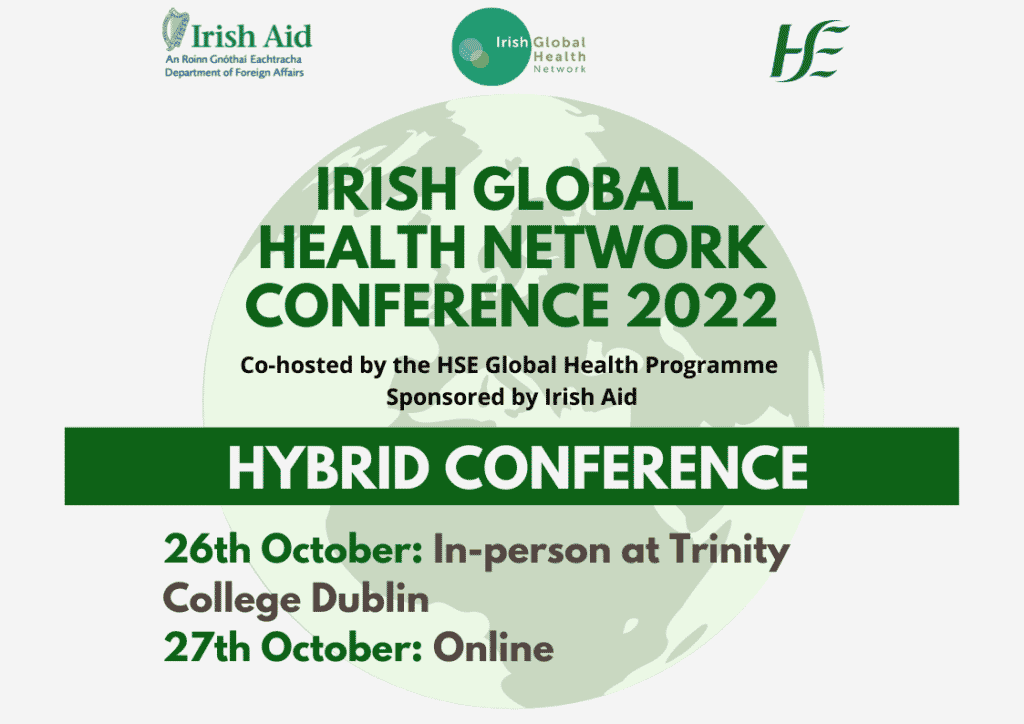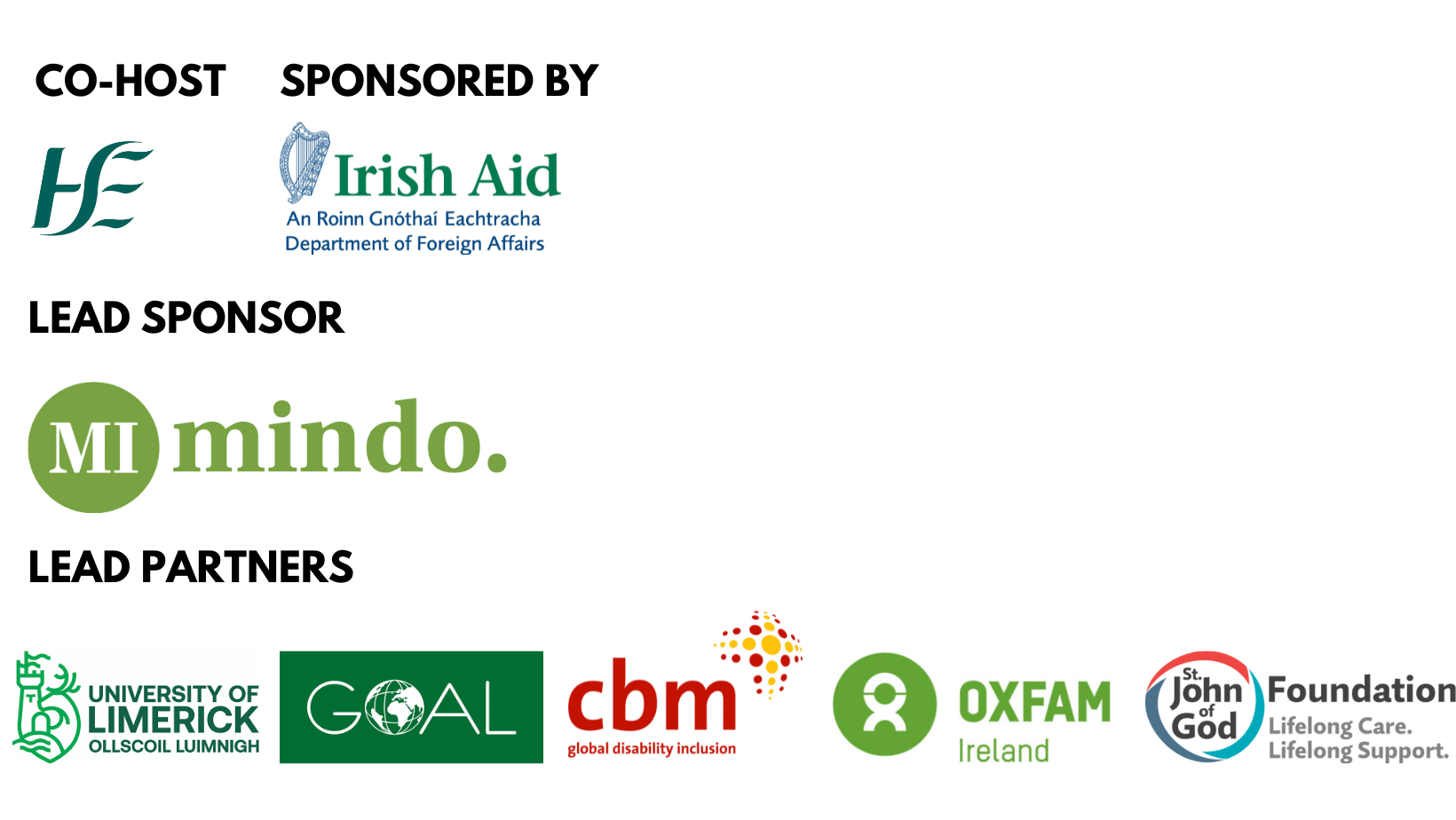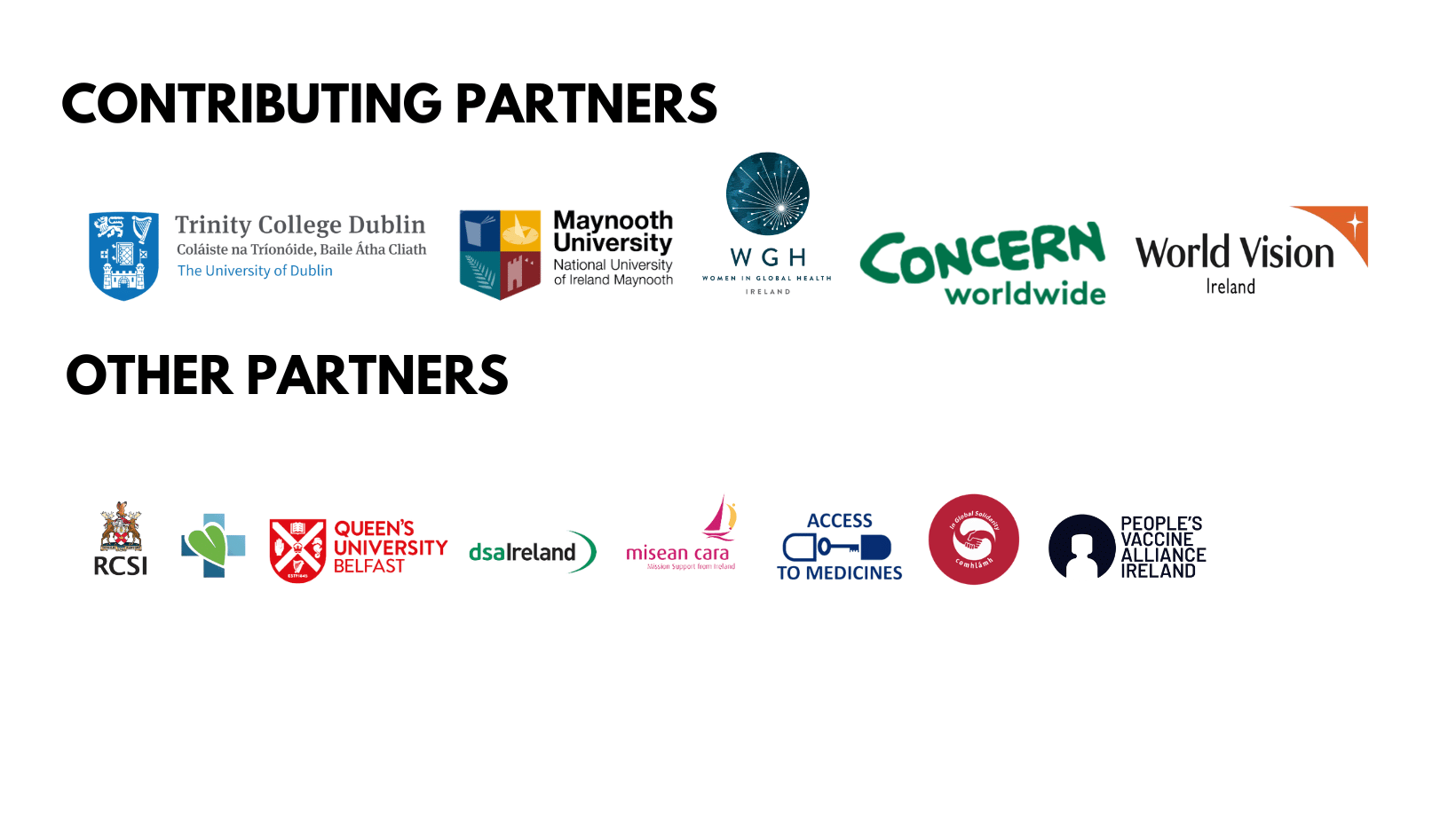

The overarching theme of the conference is Global Imbalance and Social Inclusion.
Cross-cutting issues
(descriptions are indicative only, and are not intended to capture all topics related to the issues mentioned)
- Health Systems Resilience: there is a pressing need to build resilience to shocks and stresses that impact on health systems, the importance of which is underscored by the impact of the COVID-19 pandemic on health systems across the world. Shocks such as disease outbreaks, conflict and displacement, as well as climatic shocks are increasingly impacting on health especially where health systems are already weak. This cuts across all levels of the health system, including Individual/household, community, health service delivery and health system organisation
- Challenging Stigma, Changing Thinking – stigma continues to be a persistent issue across health systems in every country of the world. COVID-19 brought this issue into the mainstream. What is being done to challenge stigma and change thinking?
- Gender & Intersectionality: Improving health and wellbeing requires addressing gender norms and the advancement of gender equality. Yet despite ample commitments and evidence, gender remains markedly absent in action or accountability plans. With the lack of a clear roadmap for where we want to get to and how to get there, progress on achieving both gender equality and health equity is stalling. What can be done to disrupt the status quo and advance gender equality at a local and global level? An intersectional lens is essential to understand and address the multiple and complex inequalities within global health. Intersectionality goes beyond viewing factors in isolation such as gender, age or race, etc., to assess the relationship and interactions between factors. Whilst gender is being specifically highlighted here, multiple inequalities exist across global health and this conference therefore will consider discussion which addresses inequality using a single factor, or intersectional approach, as appropriate.
- Power Inequality in Global Health:Structures and processes which were created to address inequality in global health have perpetuated in equality. Organisations in high-income countries often set the priorities in global health, with the majority of governance and financial power remaining with high-income country institutions. Shifting the power in global health is an impossible goal without fundamentally changing the structures within which GH currently operates. In 2020, a paper by Buyum et al., asked the question during COVID-19: ‘Decolonising Global Health: If not now, when?‘. What do power shifts and decolonisation mean for the Irish global health sector specifically, and for the international sector more broadly? What work has been done, and what actions need to be taken to truly shift the power in global health (without perpetuating inequality)?
- Local and Global: the imbalances that exist across the health sector in all countries and their consequences for the health of populations, for example: access to medicines; vaccine equity; education and training; climate change and health; environmental migrants: what are the inequities and how do we best address them, including evidence-based, results-focused projects that have been successful?
- Health Care Leadership and Representation: The majority of leadership positions related to health and care across our academic institutions, NGOs, and clinical settings, etc., are held by men in high-income countries. 75% of health and care workers globally are women, yet only 25% occupy positions of leadership, and out of 200 global health organisations, only 2.5% of Board positions are held by nationals of low-income countries. Decisions are influenced and made which do not accurately represent the people who will be affected by them. Significant contributions of many populations to Global Health, specifically marginalised populations, often go without recognition. What does it mean to put principles of power, equity and equality at the heart of health and care leadership and representation? What steps are in place, and what actions can be taken, including political commitments, to improve representation and decision-making in health and care?
- Human Resources for Health (and Well-being): How are health workers after COVID-19, and specifically what has the impact been on their mental health? Actions and supports are needed to support staff coping with the changes after the COVID pandemic. It is also important to learn from how the health services adapted accordingly. The resilience health workers needed for pandemic and post-war population migration.
- Community Response: What is the role of community responses and of health and care workers in the delivery of health and global health programmes? What is the role of community in the context of planetary health?
- Social Inclusion and Marginalisation: What social determinants must be integrated in programming to ensure inclusive policies which are responsive to the needs of the most vulnerable, including the sick, disabled, elderly and extremely poor? What are the mental health consequences of the pandemic? In the era of the SDGs what programmes have had the most impact in addressing the needs of the marginalised; in terms of climate justice, for example, how do we ensure our response to the climate crisis addresses the needs of those disproportionately affected?
- Youth and Adolescent Involvement in the Global Health Agenda: There are now 1.2 billion adolescents (aged 10 to 19) worldwide and this number will increase until 2050. Nearly nine out of ten adolescents live in low- and middle-income countries. The health and well-being of adolescents, now and in their adult lives, depend on their education, skill development, employability and access to high-quality health services. Adolescents also need a supportive environment that helps them to stay healthy and empowered, embrace gender equality norms and claim their rights. While deaths in children under five halved during the Millennium Development Goals period, reduction in adolescent mortality has stalled.
- Global Mental Health: Mental health problems are the single largest cause of disabilities in the world. Recent rapid changes to our social, intercultural, and environmental interactions as a result of the pandemic, mass migration of forcibly displaced persons, climate change, and war and protracted crises, raise serious concerns about the future of the world’s overall mental health and the wellbeing of its citizens. Urgent, prevention-based approaches are therefore needed to mitigate the long-term pernicious effects of mental ill-health as a key barrier to health and wellbeing.
- Implications of Ukrainian Conflict for Health and Health Services in Ireland: As a result of the conflict in Ukraine, millions of Ukrainians have been displaced and more than 36 thousand have arrived in Ireland. Ireland has committed to receiving refugees and to providing health and social care services. The unprecedented scale of the influx has been challenging and required rapid and innovative responses. As well as the health challenges facing Ukrainian refugees, there are implications for wider health system in Ireland which is already over-stretched. There are also implications for the provision of services for people coming to Ireland from other countries to seek protection. How is Ireland responding to the health needs arising from the Ukrainian conflict?
- Climate Justice: The climate emergency is a health emergency, and it is also a justice issue. Climate justice considers themes around the equitable distribution of the benefits and burdens of climate change. What strategies can we use to demonstrate and communicate our role in ensuring global climate justice to a wider audience? How can we measure the impact, at a global level, of local and regional actions? What can we do to safeguard the rights of those most vulnerable to climate change?
REGISTER FOR THE CONFERENCE HERE

CATEGORIES
- Equity in Action Blog
- Training Programmes
- Sponsorship
- Vaccine Equity
- Get Global – Global Health Talks
- Student Outreach Team
- Get Global Young Professionals Talk Global Health
- Global Health Matters – Live Event Series
- Global Health Matters – IGHN Live Event Series
- An initiative of Irish Global Health Network
- ESTHER Ireland and ESTHER Alliance for Global Health Partnerships
- Global Health Matters – Webinar Series
- ESTHER
- IGHN Conferences
- Global Health Conference 2020
- Women in Global Health – Ireland Chapter
- ESTHER Partnerships
- Weekly Webinar Series
- 4th Global Forum on HRH
- Access to Medicines
- Archive Page Weekly COVID Webinars
- Clean Cooking 2019
- Climate Change and Health Conference 2017
- Conference Abstracts
- Conference Materials
- Covid FAQ
- COVID Funding Opportunities
- COVID-19
- COVID-19: Gender Resources
- Dashboard and online resources
- Education
- ESTHER Alliance
- Events
- Events & News
- Funding covid
- Global Health Exchange 2018
- Global Health Exchange 2019
- Global Health symposium 2019
- Health Workforce/HRH
- Homepage Featured
- Homepage recent posts
- IFGH 2011-2012 Conference and Events
- IFGH 2014 Conference
- IFGH Multimedia
- Irish AIDS Day 2017
- Irish News and Feeds
- Key Correspondent Articles
- Key Correspondent News
- Maternal Health
- Multimedia
- News
- News & Events
- Newsletter
- Opportunity
- Our LMIC's Resources for COVID19
- Partner Country News and Feeds
- Past Events
- Policy
- Presentations
- Recurring events
- Reports & Publications
- Research
- Resources
- Student Outreach Group
- Students Corner
- TEDTalks
- TRAINING COURSES FOR HEALTH CARE PROFESSIONALS
- Uncategorized
- Upcoming Events
RECENT POSTS

Imagine a world without nurses
By Ivana Hussu, June 2025 Imagine a world without...

Making Therapy Accessible: Reimagining Mental Health Through Traditional Healing and Language by Talha AlAli
“No one today is purely one thing. Labels like Indian, or...

Decolonisation as a framework for Youth Partnership in Global Health by Arwa Hany Sharaby
The Sustainable Development Goals (SDGs) recognise that...

“Fight the bullies!”
By Ivana Hussu, March 2024 “Fight the bullies”. A...

SOT Pre-Conference Event 2025
Date: February 10th, 2025 Location: Centre for...

Restore Humanity Campaign – A Response to US Global Policies and Funding Cuts
The Restore Humanity Campaign calls on Irish NGOs, Civil...
